The Lurking Inconsistency
by Herman Daly
Ecological economics has roots in ecology and biology as well as in economics. Most of ecological economists’ and steady-state economists’ time has been well-spent correcting economics in the light of biology and ecology. And there is still more to do in this direction. However, we should be careful to avoid importing some deep metaphysical biases frequent in biology, along with its scientific truths.
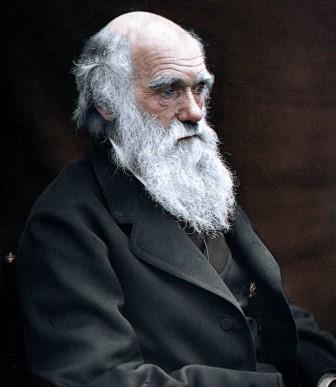
Neo-Darwinism is used as an explanation for everything; however, as many steady-state economists point out, it cannot explain consciousness and purpose. (Image: CC BY 2.0, Credit: Julius Jääskeläinen)
According to biologists, the existence of any species is an accident and its continued survival is always subject to cancellation by the all-powerful process of random mutation and natural selection as it occurs anywhere in the interdependent ecosystem. This blind process, over long time periods, is held to explain not only the evolution of all living things from a presumed common ancestor but also, in some versions, the “spontaneous generation” of the common ancestor itself from the “primordial chemical soup.” For human beings, random mutation and natural selection are thought to determine not only such characteristics as eye color and height but also intelligence, consciousness, morality, and capacity for rational thought. Neo-Darwinism has been extrapolated from a good explanation of many facts to the universal explanation of everything.
Powerful though it certainly is, the neo-Darwinist theory cannot explain consciousness and purpose. Even in the realm of materialism, it faces some serious glitches. I refer to the problem of how it happens that many interdependent parts of a complex organ, each of which has no independent survival value, can both occur and be retained until the whole organ is assembled into a complete functioning unit, which only then can contribute to survival and thus be selected. Also, there is the anomaly of altruism. Kin selection does not explain Mother Theresa or Oskar Schindler, and in any case, is now disputed among biologists. But let me leave all that for future debate. My point for now is that biologists/ecologists who teach a materialist neo-Darwinist worldview to sophomores on Monday, Wednesday, and Friday, and then devote their Tuesdays, Thursdays, and Saturdays to pleading with Congress and the public to enact policies to save this or that endangered species are in the tight grip of a serious inconsistency.
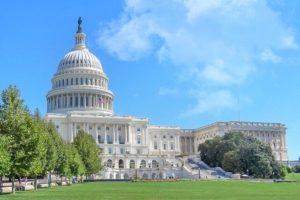
Biologist who teach a materialist neo-Darwinist worldview to students and then try to enact legislation to protect endangered species are guilty of “are guilty of the lurking inconsistency.” (Image: CC0, Credit: FrancineS0321)
Naturally, the public asks the biologists what purpose would be served by saving certain threatened species. Since many leading biologists, as scientific materialists, claim not to believe in purpose (either in the sense of cosmic telos or mere individual preferences that are independently causative in the physical world) this is not an easy question for them to answer. They tell us about biodiversity, ecosystem stability and resilience, and about a presumed instinct of biophilia that we (who systematically drive other species to extinction) are nevertheless alleged to posses encoded in our genes. But the biologists cannot affirm any of these descriptive concepts as an abiding purpose, or objective value, because doing so would contradict the fundamental assumption of their science. For example, biophilia could be appealed to as a virtue, a persuasive value rather than a wishfully imagined part of the deterministic genetic code. But that would be to admit purpose. Instead, biologists try to find some overlooked mechanistic cause that will make us do what we believe we ought to do, but can’t logically advocate without acknowledging the reality of purpose. Absent purpose and value, the biologists’ appeals to Congress and the public for conservation are both logically and emotionally feeble.
Others have called attention to this problem in the past. The term “lurking inconsistency,” as well as its meaning, is taken from Alfred North Whitehead who expressed it in the following passage that repays careful reading:
A scientific realism, based on mechanism, is conjoined with an unwavering belief in the world of men and of the higher animals as being composed of self-determining organisms. This radical inconsistency at the basis of modern thought accounts for much that is half-hearted and wavering in our civilization. . . .It enfeebles [thought], by reason of the inconsistency lurking in the background. . . .For instance, the enterprises produced by the individualistic energy of the European peoples presuppose physical actions directed to final causes. But the science which is employed in their development is based on a philosophy which asserts that physical causation is supreme, and which disjoins the physical cause from the final end. It is not popular to dwell on the absolute contradiction here involved.[1]
In other words, our scientific understanding of nature is based on mechanism, on material and efficient causation with no room for final cause, teleology, or purpose. Yet we ourselves, and higher animals in general, directly experience purpose, and, within limits, act in a self-determining manner. If we are part of nature then so is purpose; if purpose is not part of nature then neither, in at least one significant way, are we. Elsewhere Whitehead put the contradiction more pointedly: “Scientists animated by the purpose of proving that they are purposeless constitute an interesting subject for study.” Biologist Charles Birch, a keen student of Whitehead, has restated the lurking inconsistency in his insightful book On Purpose: “[Purpose] has become the central problem for contemporary thought because of the mismatch in modernism between how we think of ourselves and how we think and act in relation to the rest of the world.”[2] Clearly, not all biologists are guilty of the lurking inconsistency.
The directly experienced reality of purpose or final cause must be, in the view of materialism, an “epiphenomenon”—an illusion which itself was selected because of the reproductive advantage that it chanced to confer on those under its spell. It is odd that the illusion of purpose should be thought to confer a selective advantage in the real biophysical world while purpose itself is held to be a non-causative epiphenomenon—but that is the neo-Darwinist’s problem, not mine. The policy implication of the materialist dogma that purpose is not causative is laissez faire beyond the most libertarian economist’s wildest model. The only “policy” consistent with this view is “let it happen as it will anyway.” Is it too much to ask the neo-Darwinist to speculate about the possibility that the survival value of neo-Darwinism itself has become negative for the species that really believe it as a metaphysical worldview? Does not this lurking inconsistency have lethal consequences for policy of any kind?
Teleology has its limits and from the Enlightenment onward it is evident that materialism has constituted an enormously powerful research paradigm for biology. The temptation to elevate a successful research paradigm to the level of a metaphysical worldview is perhaps irresistible. But materialism too has its limits. To deny the reality of our most immediately direct and universal experience (that of purpose) because it doesn’t fit the presuppositions of methodological materialism, is profoundly anti-empirical. To then refuse to recognize the devastating logical and moral consequences that result from the denial of purpose is anti-rational. For those of us who consider science a rational and empirical enterprise, this is extremely troubling. Those people already unembarrassed by the fact that their major intellectual purpose is to deny the reality of purpose should now want to concern themselves deeply with the relative valuation of accidental pieces of their purposeless world is incoherence compounded.
One cannot rescue neo-Darwinism from the domain of purposeless and randomness by pointing to the role of natural selection. Selection may sound purposeful, but the accepted theory of natural selection chance dominates. Random mutation provides the menu from which natural selection “chooses” by the criterion of the odds of surviving and reproducing in a randomly changing environment (consisting of randomly changing geophysical conditions and other species that are also randomly evolving). It is a metaphysics of chance all the way down.
The relevance of the lurking inconsistency to conservation biology and steady-state economics should be evident—conservation and sustainable scale are, after all, purposes that are ruled out in a world governed only by chance.
If purpose does not exist then it is hard to imagine how we could experience the lure of value. To have a purpose means to serve an end and value is imputed to whatever furthers the attainment of that end. Alternatively, if there is objective value then surely the attainment of value should become a purpose. Neo-Darwinist biologists and ecologists, who deny the reality of purpose, owe it to the rest of us to remain silent about valuation—and conservation as well. If they simply cannot remain silent, then they must rethink their deterministic materialism. Distinguished philosopher Thomas Nagel has offered to help them in his recent book Mind and Cosmos: Why the Materialist Neo-Darwinist Conception of Nature is Almost Certainly Wrong. But his “help” requires more recantation than the naturalists can bear, and, even though Nagel is a fellow atheist, he has been excommunicated from the Church of Neo-Darwinism for heresy.
Economists, unlike many biologists, do not usually go to the extreme of denying the existence of purpose. They recognize purpose in the attenuated form under the rubric of individual preferences and do not generally consider them to be illusory. However, preferences are thought to be purely subjective so that one person’s preferences are as good as another’s. Unlike public facts, private preferences cannot be right or wrong—there is, by assumption, no objective standard of value by which preferences can be judged. Nevertheless, according to economists, individual preferences are the ultimate standard of value. Witness economists’ attempts to value species by asking consumers how much they would be willing to pay to save a threatened species, or how much they would accept in compensation for the species’ disappearance. The fact that the two methods of this “contingent valuation” give different answers only adds comic relief to the underlying tragedy, which is the reduction of value to taste weighted by income.
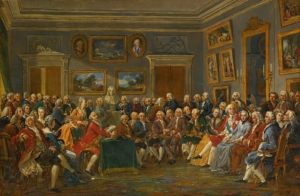
The Enlightenment Age rejected teleology and revealed hidden recesses of superstition. The angle of the light, however, has extended into the modern world, obscuring the reality of purpose. (Image: CC0, Credit: Ancient Charles Gabriel Lemonnier).
Economics too suffers from the lurking inconsistency, but not to the extent that biology does. Purpose has not been excluded, just reduced to the level of tastes. But even an unexamined and unworthy purpose, such as unconstrained aggregate satisfaction of uninstructed private tastes weighted by income—GDP growth forever—will dominate in the absence of purpose. So, in the public policy forum, economists with their attenuated, subjective concept of purpose (which at least is thought to be causative) will dominate the neo-Darwinist ecologists who are still crippled by the self-inflicted purpose of proving that they are purposeless. Consequently, GDP growth will continue to dominate conservation.
Whitehead’s observation that “it is not popular to dwell on the absolute contradiction here involved,” remains true 85 years later. This willful neglect has allowed the lurking inconsistency to metastasize into the marrow of modernity. The Enlightenment, with its rejection of teleology, certainly illuminated some hidden recesses of superstition in the so-called Dark Ages. But the angle of its cold light has also cast a deep shadow forward into the modern world, obscuring the reality of purpose. To conserve Creation we will first have to reclaim purpose from that darkness. I say Creation with a capital “C” advisedly and not in denial of the facts of evolution. Rather, if we think that our world, our lives, and our conscious, self-reflective thinking are just a random happenstance of matter in motion—a temporary statistical fluke of multiplying infinitesimal probabilities by an infinite number of trials—then it is hard to see why we should make any sacrifice to maintain the capacity of the Earth to support life or from where we would get the inspiration to do so. This is the lurking inconsistency’s bottom-line consequence for conservation biology and steady-state economics. Our problem is not just faulty economics or biology; it is a deep underlying metaphysical and philosophical contradiction.
An earlier version appeared in Conservation Biology, August 1999, Vol. 13 No. 4, pp. 693-94.
Footnotes
[1] Whitehead, A. 1925. Science and the Modern World. Simon and Schuster, New York.
[2] Birch, C. 1991. On Purpose. University of New South Wales, Kensington, Australia.
 Herman Daly is CASSE Chief Economist, Professor Emeritus (University of Maryland), and past World Bank senior economist.
Herman Daly is CASSE Chief Economist, Professor Emeritus (University of Maryland), and past World Bank senior economist.

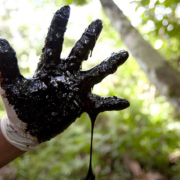
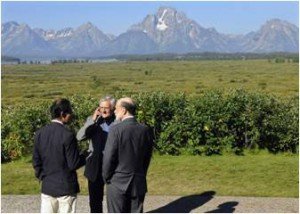

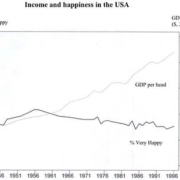



“I refer to the problem of how it happens that many interdependent parts of a complex organ, each of which has no independent survival value, can both occur and be retained until the whole organ is assembled into a complete functioning unit, which only then can contribute to survival and thus be selected”
The author’s inability to understand evolution doesn’t create problems for the theory, it creates problems for the author…
“Powerful though it certainly is, the neo-Darwinist theory cannot explain consciousness and purpose. ”
AND
“Our problem is not just faulty economics or biology; it is deep underlying metaphysical and philosophical contradiction.”
The economics is extremely faulty. The biology is right on. The only piece of the puzzle they’re missing is the realization that humans are tiny bits of conscious universe.
Humanity is a happy accident that has allowed the universe to become aware of itself.
Given that can you still question why a bit of conscious, empathetic universe would want to preserve and help another beautiful bit of universe thrive?
Nonsense. Current evolutionary theory is just fine, and it need not have any implications for how we run our society. It explains the behavior of animals who are possessed of limited free will and are living under conditions of productive scarcity -and even under these conditions cooperation is as prevalent as competition. This basic difference in the economic situation of humans and the animal world should be obvious to an economist. Humans have a productive surplus, a far greater capacity to think rationally, empathetically and ethically, and therefore have far more choice with regard to how our societies are run. Even if current evolutionary theory posited a dog eat dog world (which it doesnt), what is for the animal world is not the same as what ought to be for humans. Whether a steady state economy is possible has nothing to do with evolutionary theory.
Conservation biology is not based on ‘biophilia’ as some kind of natural human behavior. It’s based on a recognition that we depend on the environment, and from the ethical perspective that we should minimise the extent to which other species suffer as a result of human activity. There is no contradiction here.
Evolution may have predisposed us to selfishness, but we have spent much of our history building institutions to counteract this. Human behavior isn’t rooted in its past, it’s also a product if the society around it.
The reason evolutionists don’t like teleology is not because they think humans can’t lead meaningful and purposeful lives if they choose to. It’s because they don’t believe that there is a purposeful design for living creatures. The fact that we have a mechanistic explanation for diversity and adaptation has nothing to do with whether or not humans can make ethical and rational (as opposed to merely self interested) choices about our society. The fact that the only biological purpose of our bodies is to reproduce doesn’t stop us from doing all the other things humans do.
Nagel’s book is part of a long history of debate about free will and consciousness. There is a serious debate as to whether a science can ever explain consciousness. But none of this is really relevant. Even if we are a product of mechanistic evolutionary forces, does this stop an old man from writing a letter to congress asking them to take action on climate change for the sake of people he’ll never meet?
There is no underlying contradiction, and we don’t need to rewrite evolution.
@MKN ‘Evolution may have predisposed us to selfishness, but we have spent much of our history building institutions to counteract this’
So we’re locked in a perpetual battle to deny our essential natures, our ‘selfish genes’, with no hope that we can escape this contradictory cycle? What a tragic existence.
Dear Dr. Daly:
I am always rewarded many times over when I drop by your blog for a lesson, and this time is no exception. What a fantastic analysis!
May I beg your attention to a pair of related entries on my own blog. The first is a C&C-minded Plea to Robert Goodland and Herman Daly that the good Dr. Goodland has already been kind enough answer in the resounding affirmative.
The other entry is my First Letter to the Arctic Methane Emergency Group. In this entry, I would draw your attention to argument for telos I just begin to advance in point #1.
As I read your own blog article here on this page, I cannot help but think that the potential role of archaebacteria and methanogenesis in C&C to a steady-state economy may be point toward a remarkable fusion between evolutionary biology and steady-state economics in the 2013-2019 Arctic methane emergency tipping point period.
Many thanks.
The purpose of evolution is erroneously being conflated with the trait of purposefulness. There is no “purpose” to evolution, but that does not prohibit the evolution of the trait of “purposefulness.” There isn’t a problem with the theory, only the interpretation of the theory. Purposefulness could evolve and yet not have any survival value.
Not all biologists lobby congress and it is not difficult to find inconsistencies within any group. This in no way devalues biologists or evolutionary theory.
Current economics is a faulty trait and natural selection will eventually select against this trait.
The “many interdependent parts” argument is a straw man at best. If an understanding of evolution was in order, this is a non argument.
The theory of evolution is anything but contradictory and is a very health theory.
I am sorry the typos in my above comment are so distracting. If I may explain myself just a bit more on the telos issue, with the acknowledgement I am being highly speculative. I believe we may be looking at an unrecognized homeostatic greenhouse gas-regulating mechanism in the RNA/DNA of the archaebacteria. If the evolution of human intelligence is an expression of this deep order, we may now be approaching a tipping point at which collective human stewardship of anthropogenic and non-anthropogenic methane (along with all other greenhouse gases) represents a telos of a stable planetary greenhouse system, i.e., an Eden…which is also a steady-state economy.
It is very interesting that an excess of anthropogenic methane emissions may produce a cancer of the planet that is comparable to the cancer Professor Emeritus T. Colin Campbell so persuasively and brilliantly demonstrates is more likely to result from an excess consumption of animal protein. In other words, the same lifestyle behavior that will profoundly improve human health in the 21st century has all of the required ecological knock-on benefits that we need to stabilize the climate and restore forests and their associated biodiversity. Of course we also desperately need to address fossil fuel emissions, but if methane proves to be as vital to the “Gaia Hypothesis” as I argue it is, we may be looking at a single planetary process for protein homeostasis in a steady-state greenhouse, within which the regulation of fossil fuel emissions may be a subset or derivative process.
Herman Daly and T. Colin Campbell come together conceptually in the work of Robert Goodland, and my work is highly derivative of Goodland. In my view, it is precisely Herman Daly’s ability to discuss telos at such an advanced economic and ecological level that sets him apart as the top economist I have thus far discovered…even as I think T. Colin Campbell is the top nutritionist I have thus far discovered. Robert Goodland bridges these two worlds, but I am very concerned there are now far too few Robert Goodlands to save us from runaway global warming.
Professor Daly is right on in pointing to the lurking (and radical) inconsistency in our western metaphysics of which Whitehead speaks. “A scientific realism, based on mechanism, is conjoined with an unwavering belief in the world of men and of the higher animals as being composed of self-determining organisms.” Can we inquire into the meaning of “mechanism” here? –a word commonly used within scientific circles but very rarely considered in light of its philosophical implications: deadness, consciousness-less, whatever is happening is wholly attributable to the workings of inert “matter.” If the ongoing changes of the universe are, in “reality,” nothing but what is being conveyed by the word “mechanism,” then there is indeed no place for our human form of consciousness and purposiveness and that obviously displayed by many other vertebrates (though I would say that “consciousness,” “purposiveness,” and “life” are in fact coextensive terms).
There is a deep lacuna at the heart of western thought that virtually screams out at us for recognition: it is the lack of comprehending LIFE itself, a phenomenon that we now know biologically is one marked by great complexity, an anentropic state that each organism strives to maintain and, if possible, reproduce–i. e., something that, for each individual being, is very clearly “purposeful.” The “purpose” that a Darwinian view supposedly eliminated was not this LIFE-pursuing purpose of of all living organisms but the supposed “purpose” of evolution itself to culminate in the emergence of the human species–something that many biologists, as well as philosophers, unfortunately seem not to have given up unto this day.
WHY has the central importance of LIFE not been recognized in our philosophical tradition, let alone the scientific discipline of biology? I think the answer must lie in a final desperate clinging to Cartesianism, and the anthropocentrism, and fantasized immortalism, that goes along with it. Consider one of the posts above:
“Conservation biology is not based on ‘biophilia’ as some kind of natural human behavior. It’s based on a recognition that we depend on the environment, and from the ethical perspective that we should minimise the extent to which other species suffer as a result of human activity. There is no contradiction here.”
This series of statements illustrates the very disconnect that Whitehead and Daly are bearing witness to. “We depend on the environment”–well who are “we,” and don’t “we” have purposes, don’t we experience ourselves as conscious beings who do, to some extent, determine what we do in our lives by conscious choice? But then it seems that everything else, every other living thing, is merely “the environment”–purposeless, mechanistic, inert matter we humans want to “conserve” merely so it can serve as material support (as long as its components don’t “suffer”–another example of inconsistency?) for our own, uniquely purposive lives (though we might not wish to admit feeling as such about even our own lives were we speaking in a biological colloquium). It is a most pathological form of cognitive dissonance, or, more to the moral point, bad faith.
If one fully accepts the Darwinian principle of common descent, one realizes that there is no room for anthropocentrism in appreciating LIFE as it has evolved and elaborated on the Earth over the last several billion years. Working the image of the Tree of Life into one’s core metaphysics, the implications for human responsibility become apparent, and humbling. For some, including Michael Soule, a founder of conservation biology, biophilia, or more cognitively, the philosophy of deep ecology, is the motivating force behind the discipline, not self-serving Baconianism. Arne Naess gives a stirring exhortation urging the defenders of nature to rise and become accountable in Soule’s “yellow book,” which came out more than 25 years ago. Too bad so few rose to the challenge.
Had we humans begun to appreciate our place within the scheme of things–our particular branch on the Tree of Life and our immensely interconnected set of ecological relationships with other living beings–25 years ago (or better yet, 50, when some of these issues were in conscious circulation), we might not be in the situation we find ourselves today, rapidly hurtling into the Anthropocene, transitioning from the stable state of the Holocene toward what may be a radically different and far less hospitable state of the planet for us. If we had stopped the voracious exploitation of the living biosphere shortly after the fact that our collective human activities could be accurately described as such first began to impinge upon our consciousness, if a moral restraint based upon our regard for other forms of life had come into play at that time, many parameters that now may be changing in ways beyond our control would still have been within the “safe operating space.” But no, the forces of YANG that push us to ever greater population size, ever greater earth-moving and resource-mining, ever greater indulgence in the Cartesian fantasy of disconnection and domination kept it all going. The stifling cognitive status quo was kept firmly in place, maintained by increasing collective denial, the exploitation driven to greater and greater extremes by social inertia continuing our movement in a single direction, farther and farther away from biospherical balance.
Having watched all of this continue, way, way past the time of recognition that our species was on the wrong track and headed for doom, I can’t say that humanity doesn’t deserve its fate if the climate change we have brought on wipes us off the face of the Earth. It will be a shame, because Homo sapiens had such a great potential. But it’s all the other species we will take down with us that deserve my greatest sorrow and regret.